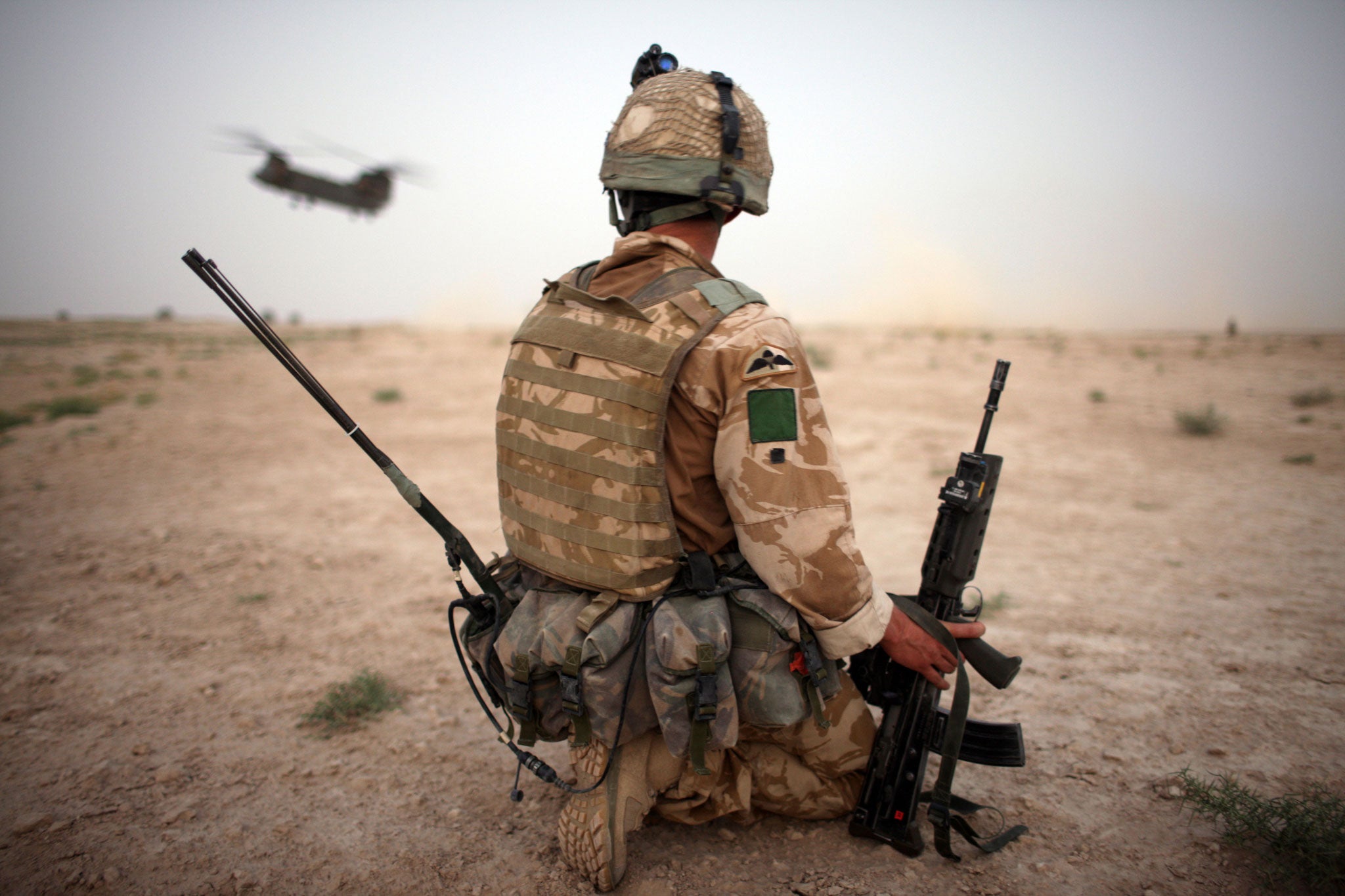Reducing the defence budget is not the end of Britain. It could be part of our rebirth
We have vastly better things to do with the money


Former US Defence Secretary Robert Gates this week aired his concerns about Britain’s military limitations. I’ve no gripe with somebody selling their book - Gates is doing it, I do it, every author does it - but I take issue with his arguments. Far from being something to fear, a reduced offensive capability is now necessary and positive. We should embrace it.
The tantrums which are emerging from the offense camp should be ignored. Britain has one of the largest military budgets in the world. As part of our swollen offense portfolio this small nation wields a preposterously expensive standing military which lacks utility (see Afghanistan, Iraq, Libya) and a nuclear arsenal which has no practical value beyond masculine prestige. There are three factors to consider.
First we ought to shackle the militaristic tendencies of our leaders. What the historian Norman Gash wrote of the English, that they “have the singularity of being martial nation without being a militaristic one”, is today as true of the British as a whole. We are pugnacious, punchy, sporadically volatile – so what? That tendency need not spill into militarism - which ill suits us, benefitting only arms companies and gong-chasers.
In Britain the idea of maintaining a substantial body of armed men outside of war time was once openly mocked and held to be irreconcilable with liberty. “No Standing Army” was once a political slogan in these islands. I don’t mean to disband the army tomorrow; we just have vastly better things to do with our money. Recalling and updating our anti-militarist British roots would be a start.
Secondly, good things occur when Britain lets go of imperial ambitions. Hawks may grumble about security, prestige, our ability to “punch above our weight” and our “standing in the world” but an urge to be at empire’s table is what drives them. They favour offensive military capability at the expense of citizens in serious need of relief from austerity’s ideological lash.
The Second World War diminished Britain as a major imperial power. This is nothing to cry about. We got the welfare state, the NHS and a better Britain than we had had previously. That change was driven by those who had fought fascism – citizens who through the hardships of war came to realize own their power. That spirit took us away from militarism; it should be taken up once again.
Lastly, a smaller army and less nukes is logically less likely to entice the apocalypse than more troops and bombs. A reduced offensive capacity is not the end of Britain. It could be the start of a climb towards becoming a country favourably viewed in the world. If you don’t have oodles of shiny kit, you are less inclined to rely on it – you get clever. We can reflect this in the way we conduct ourselves diplomatically.
A quirk of Britain’s imperial history is that we have in this country a wholesome variety of people whose origins lay elsewhere. With reduced military options we would be wise to develop this rich, multi-lingual and multicultural internationalist treasure trove. Not as imperial lackeys but as representatives and negotiators.
By developing options to aggressive militarism we can keep ourselves honest and, perhaps, improve the world. Let the hawks harp about our military decline. It’s time for Britain to grow up.

Join our commenting forum
Join thought-provoking conversations, follow other Independent readers and see their replies